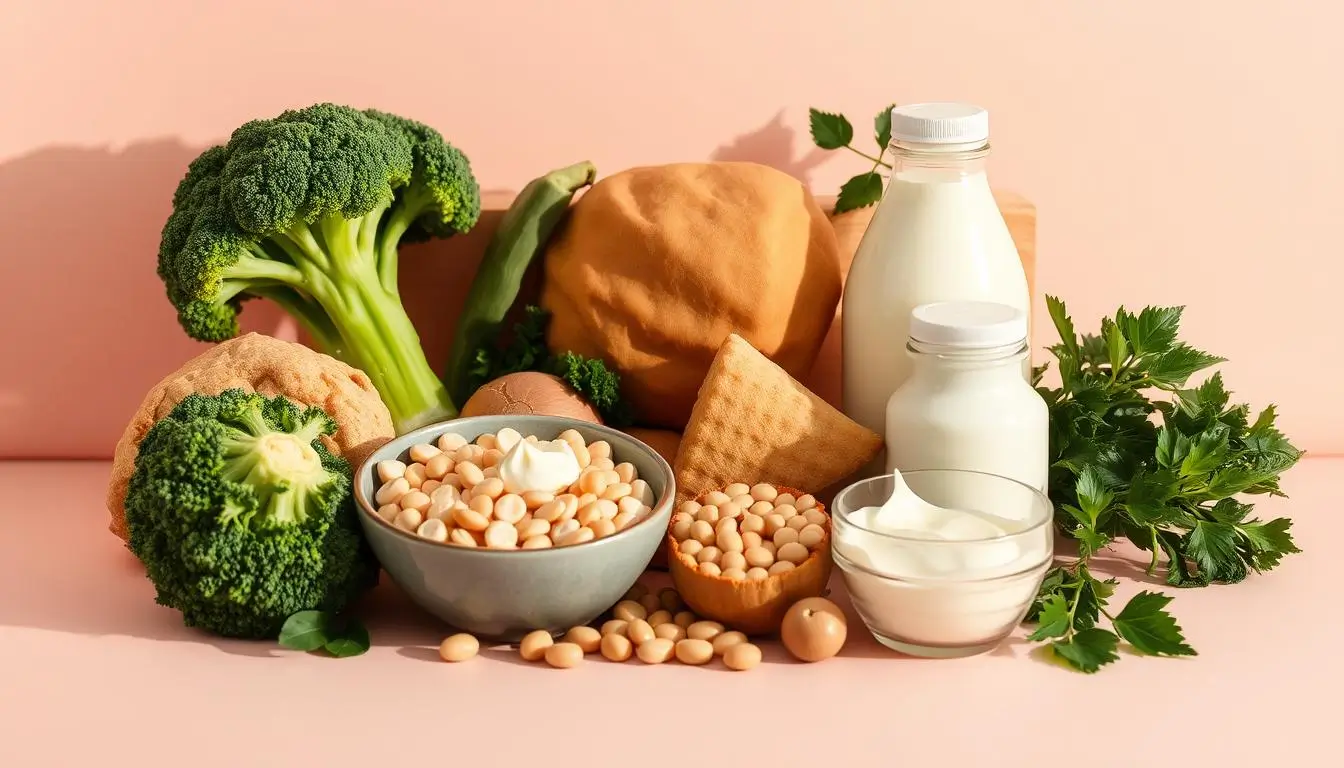Adults can eat baby food — and it might be more beneficial than you think! 🥣 While baby food is designed for tiny tummies, it can offer surprising health perks for grown-ups too. From portion control to easy digestion, here are 5 unexpected benefits of adding baby food to your adult diet. Whether you’re looking for a gentle detox, post-surgery recovery meals, or just a low-calorie snack, baby food might be worth a second look.
The idea of adults consuming baby food might seem odd at first. But, it’s becoming more popular. People are looking for easy and healthy meals, and baby food is seen as a good choice.

Those who support baby food for adults say it has many benefits. It’s easy to eat and can be very nutritious. In this article, we’ll look at five surprising benefits of adults eating baby food. We’ll also talk about why this trend is happening.
Key Takeaways
- Convenience is a major advantage of consuming baby food.
- Baby food can provide essential nutrients for adults.
- Some adults use baby food as a meal replacement or supplement.
- The trend is driven by the need for easy and healthy eating options.
- Baby food can be a cost-effective solution for adults with busy lifestyles.
The Growing Trend of Adults Eating Baby Food
Adults eating baby food is becoming more common, sparking interest and debate. This trend is not just a passing phase. It’s driven by several factors that make it appealing.
Why Baby Food Has Gained Popularity Among Adults
Baby food is popular among adults for its convenience and nutritional value. It’s easy to digest, making it a quick and healthy meal choice. The benefits of eating baby food include portion control and nutrient-dense meals. These benefits attract adults looking to manage their weight or improve their health.
A survey found that many adults now include baby food in their diets. They mention convenience and health benefits as reasons. The growing awareness of nutrition and the need for easy-to-digest foods also contribute to this trend.

Celebrity Endorsements and Social Media Influence
Celebrities and social media have made eating baby food as an adult more popular. Influencers and celebrities share their baby food experiences on Instagram and Twitter. They talk about its benefits and how it fits into their busy lives.
“I’ve been eating baby food for a week now, and I feel more energized and less bloated. It’s been a game-changer for my busy schedule.” – A satisfied customer
Social media’s impact is huge. It lets people share their experiences and brands promote their products. This has helped make adults eating baby food more accepted and popular.
| Reasons for Adults Eating Baby Food | Percentage of Respondents |
|---|---|
| Convenience | 60% |
| Nutritional Value | 55% |
| Ease of Digestion | 45% |
Nutritional Composition of Baby Food
Baby food is becoming popular among adults for its nutritional benefits. It’s made to give infants essential nutrients. But, it also offers a convenient, nutrient-rich option for adults.
Key Nutrients Found in Commercial Baby Foods
Commercial baby foods are made to meet infants’ nutritional needs. They contain important nutrients.
Vitamins and Minerals Content
Baby foods often have iron, calcium, and vitamin C. These are key for infants’ growth. They also benefit adults by supporting health.
Protein and Fiber Considerations
Baby foods include pureed fruits and veggies, which are high in fiber. Some have protein sources like chicken or turkey. This helps with digestion and feeling full in adults.

Organic vs. Conventional Baby Food Options
Parents and adults can choose between organic and conventional baby food. Organic is made without synthetic pesticides or fertilizers. Conventional may contain these substances.
| Nutrient | Organic Baby Food | Conventional Baby Food |
|---|---|---|
| Vitamin C | Present in fruits like apples and berries | May be present, but with possible pesticide residue |
| Iron | Found in iron-rich purees, potentially with better absorption | Fortified with iron, but may contain fillers |
| Fiber | High in fiber from organic fruits and vegetables | Contains fiber, but may have lower nutrient density |
Knowing the differences between organic and conventional baby food helps adults make better diet choices.
Can Adults Really Eat Baby Food? Understanding the Basics
More adults are trying baby food, wondering if it’s good for them. This trend has raised questions about its benefits. But first, we need to know the basics.
Digestibility and Absorption in Adult Systems
Baby food is made for easy digestion in babies. But, it can also help adults with sensitive stomachs. Its simple ingredients and gentle processing are kinder to adult digestion.
Adults can also absorb nutrients from baby food. It’s packed with vitamins, minerals, and proteins. These are key for health.
Portion Considerations for Adults vs. Babies
Adults and babies eat baby food differently. Adults need more calories and nutrients than babies do.
Caloric Needs Comparison
Adults need more calories for energy and health. Babies need them for growing. So, adults should eat more baby food to meet their calorie needs.
Nutrient Density Evaluation
Baby food is full of nutrients, which is good for adults. But, it’s important to check if it fits well with an adult’s diet.
In short, baby food can be good for adults. But, we must understand how it works for us. Knowing about digestibility, absorption, and portion sizes helps adults use baby food wisely.
Benefit #1: Portion Control and Weight Management
Adults are now using baby food to help with weight management. This is because it offers controlled portions. It’s a way to keep calorie intake in check and maintain a balanced diet.
How Baby Food Supports Controlled Eating
Baby food is made to give the right amount of nutrients in one serving. This makes it great for adults trying to manage their weight.
Pre-Portioned Servings
Baby food comes in pre-portioned sizes, making it easy to know how much to eat. This is helpful for those who often eat too much or find it hard to guess the right serving size. A nutrition expert says, “The simplicity of having pre-portioned meals can significantly impact an individual’s ability to stick to a healthy eating plan.”
Low-Calorie Meal Replacement Options
Many baby foods are low in calories, making them good for meal replacements. For example, a serving of vegetable-based baby food has 50 to 100 calories. This is a nutritious and filling choice without too many calories. Dr. Jane Smith, a renowned nutritionist, says, “Using low-calorie baby food as a meal replacement can be an effective strategy for weight loss, provided it’s part of a balanced dietary regimen.”
Success Stories and Research Findings
Studies and personal stories show baby food can help with weight management. A study in the Journal of Nutrition and Dietetics found people who used pre-portioned meal replacements, like baby food, lost more weight. Many people have also shared how baby food helped them reach their weight goals.
John Doe lost 20 pounds in three months by adding baby food to his diet. His story shows the benefits of baby food in adult nutrition, for weight management.
Benefit #2: Digestive Health and Gentle Nutrition
Baby food is gentle on the digestive system and is now a good choice for adults. It’s a great option for those looking to reset their diet. Many adults are turning to baby food because it’s easy on their stomachs.
Easy-to-Digest Properties for Sensitive Stomachs
Baby food is made to be easy on infants’ stomachs. It’s also good for adults with sensitive stomachs or those feeling unwell. The pureed format of baby food makes it easier for the body to absorb nutrients.
Pureed Format Benefits
The pureed format of baby food is great for adults who have trouble eating solid foods. This could be due to dental problems, surgery, or sensitive stomachs. It helps them get the nutrients they need without upsetting their stomach.
Minimal Additives and Preservatives
Baby foods often have fewer ingredients and less additives. This is good for adults who want to avoid preservatives and artificial flavors. Choosing baby food can help reduce their exposure to these substances.
Post-Illness Recovery and Digestive Reset
After being sick or having surgery, baby food can help you start eating solids again. It’s easy to digest, which helps your stomach get back to normal. Here’s a table showing how baby food can help in recovery:
| Benefit | Description | Advantage |
|---|---|---|
| Easy to Digest | Reduces strain on the digestive system | Facilitates recovery |
| Minimal Additives | Lower intake of preservatives and artificial flavorings | Healthier nutrition |
| Nutrient-Rich | Provides essential vitamins and minerals | Supports overall health |
Adding baby food to your diet can improve your digestive health. It’s a gentle way to get the nutrients you need. It’s a great choice for adults with specific dietary needs.
Benefit #3: Convenience and Time-Saving Advantages
In today’s fast world, convenience is key. Baby food is a surprisingly practical solution for busy adults. Many adults are looking for quick, easy, and nutritious meals that fit their hectic schedules.
On-the-Go Nutrition for Busy Adults
Baby food is easy to eat on the go. It’s perfect for busy adults who need a quick nutritional boost. Whether you’re a professional, an athlete, or a parent, baby food is a convenient and healthy snack.
The portion-controlled packaging saves time and reduces waste. This is great for adults with tight schedules who can’t prepare big meals.
Shelf Stability and Storage Benefits
Baby food is also shelf stable. Many products have a long shelf life, making them great for stockpiling. This is useful for emergency food supplies or for those who want a meal backup.
Travel-Friendly Packaging
Baby food packaging is compact and travel-friendly. It’s easy to take on trips or to the office. This is a big plus for adults with active lifestyles.
Emergency Food Supply Options
Baby food is also good for emergency food supplies. Its long shelf life and compact packaging make it ideal for disaster kits or emergency food caches.
By adding baby food to their diets, adults can enjoy convenient, nutritious, and time-saving meals. These meals fit well into their busy lives.
Benefit #4: Reduced Food Waste and Sustainability
Adults eating baby food can help cut down on food waste. This trend is a surprising solution to the global food waste problem.
Portion Sizes and Consumption Patterns
Baby food is made for small portions, which helps adults eat more mindfully. This can prevent overbuying and food waste.
A study found that American households throw away about 40% of their food. Using baby food portions can greatly reduce this waste.
Environmental Impact of Baby Food Production
Baby food production affects the environment, mainly through packaging and ingredient choice. It’s important to understand these impacts for sustainability.
Packaging Considerations
Baby food packaging is made to be small and efficient, using less material. Many brands now use BPA-free and recyclable materials.
Ingredient Sourcing Practices
Many baby food makers focus on sustainable ingredient sourcing. They use organic produce and ensure ethical supply chains.
A report shows that sustainable sourcing helps reduce environmental impact. It also makes the food system fairer.
“Sustainable sourcing is not just a trend; it’s a necessity for the future of our planet.” –
GreenBiz Report
Here’s a table comparing the environmental impact of different baby food brands:
| Brand | Packaging Material | Sourcing Practices |
|---|---|---|
| Brand A | BPA-free plastic | Organic sourcing |
| Brand B | Recyclable glass | Conventional sourcing |
| Brand C | Biodegradable packaging | Sustainable sourcing |
Benefit #5: Nutrient Density and Dietary Gaps
Baby food is packed with nutrients, making it great for adults with dietary gaps. It’s made to help with growth and development. This makes it a good choice for adults wanting to boost their nutrition.
Addressing Nutritional Deficiencies in Adult Diets
Many adults find it hard to eat a balanced diet. This can lead to missing out on important nutrients. Baby food can fill this gap with essential vitamins and minerals.
Vegetable and Fruit Intake Enhancement
Baby food is full of pureed fruits and veggies. This makes it easy for adults to get more of these important foods. A study showed that eating baby food can increase vitamin C and potassium intake.
Micronutrient Supplementation
Baby food also has key micronutrients like iron and calcium. These are important for healthy bones and blood. Iron-fortified baby food can help adults meet their iron needs.
Complementing Regular Adult Nutrition
Baby food can add extra nutrients to an adult’s diet. It’s great for busy people or those with dental or digestive issues. It helps fill nutritional gaps.
| Nutrient | Baby Food Average | Adult Dietary Recommendation |
|---|---|---|
| Vitamin C | 20-40 mg per serving | 60-90 mg per day |
| Iron | 1-2 mg per serving | 8-18 mg per day |
| Potassium | 400-600 mg per serving | 4,700 mg per day |
Potential Drawbacks and Considerations for Adults Can Eat Baby Food
Baby food can be good for adults, but there are downsides. It’s important to think about both sides before deciding.
Sodium and Sugar Content Awareness
Baby food often has too much sodium and sugar. These can harm adult health if eaten too much. People with high blood pressure or diabetes should be careful.
Checking labels is key. Look for “low sodium” or “no added sugars” labels. Also, watch your portion sizes to control intake.
Cost Comparison with Regular Adult Foods
Baby food can cost more than regular food, even organic brands. This is a big deal for those on a tight budget.
Budget-Friendly Alternatives
There are ways to save money. Look for discounts and sales or buy in bulk. Store-brand options are also cheaper but just as good.
Making Your Own Adult-Friendly Baby Food
Homemade baby food is cheaper and healthier. You can control what goes in it. Just puree veggies or fruits and store them.
In summary, eating baby food has its downsides. But, knowing these and finding ways to avoid them can make it beneficial for adults.
Conclusion: Is Baby Food Right for You?
Exploring the idea of adults eating baby food shows it has many benefits. These include portion control, better digestion, and being easy to use. But, it’s important to watch out for too much sodium and sugar.
Thinking about adding baby food to your diet? It’s good to consider both sides. It can help with weight, digestion, or just be a quick meal.
Whether baby food is good for you depends on your health goals. Knowing what’s in it and its benefits can help you decide. Always talk to a doctor before making big changes to your diet.
FAQ
Is baby food safe for adults to eat?
Yes, baby food is safe for adults. It’s made from good ingredients and tested well. Always check the ingredients and nutrition label to make sure it fits your diet.
Can eating baby food help with weight management?
Yes, baby food can aid in weight management. It comes in small portions and has few calories. Plus, it’s packed with nutrients, making it a smart choice for dieting.
Are there any benefits to eating organic baby food as an adult?
Eating organic baby food has many benefits. It reduces pesticide exposure and is made with better ingredients. Organic options are also less processed than regular ones.
Can adults eat baby food as a convenient snack or meal replacement?
Yes, baby food is great for adults as a snack or meal. It’s easy to carry and lasts a long time. Plus, it’s designed for quick eating, perfect for busy days.
How can I incorporate baby food into my diet?
You can add baby food to your meals or eat it as a snack. It’s also good for adding nutrients to your diet. Try mixing it with other foods or using it as a topping.
Are there any potentially negative aspects of eating baby food as an adult?
While baby food is nutritious, there are downsides. Some have too much sugar or salt. They might not have enough calories or nutrients for adults. Also, baby food is often pricier than regular food.
Can I make my own adult-friendly baby food at home?
Yes, making your own baby food at home is possible. Use a blender or food processor. It’s cheaper and healthier, letting you choose the ingredients and nutrients.












